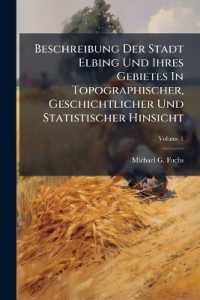Description
(Text)
Linguistic autonomy, assured internationally to ethnic minorities, has succeeded, above all, in Europe, yet is nowhere near passing its acid test in other parts of the world. Examples show that it is not only a question of linguistic autonomy, but of ethnic and religious conflicts, which are simmering in the foreground. Hence, there are reasons for doubting whether international agreements designed to guarantee linguistic autonomy can solve these conflicts.
The protection of indigenous languages is justified largely by the principle of diversity and is derived from ecological principles. However, only people who wish to take advantage of their rights will succeed in safeguarding these rights. A language that nobody speaks or wants to speak will die. Biologists have convinced us that biodiversity preserves the balance of life on earth, cultural theoreticians however have yet to deliver evidence to this effect.
Global migration has now created further problems for language regimes in many different countries. These global migration processes are creating linguistically heterogeneous populations in many countries for which the law has not created appropriate language regimes.
Global communication obeys rules that differ greatly from the methods used in teaching foreign languages at school. The English used in global communication is not the ¿academic English¿ that is taught at school, but something very different: a language that has evolved within the context of global communication. This development allows people to create languages flexibly and inventively. It cannot, however, be grasped with the existing conception of language rights.
Language rights have appeared so far in two different forms, namely: as the legal basis of self-government, and as the legal basis of individual human rights. Considering the challenges by global migration and communication, far too much is expected of the first of the two aspects and that it is, therefore, unsuitable for solving the problems. Universally valid individual human rights definitely contain the potential for supporting what is an essential revision of language rights.
(Author portrait)
Ingo Richter, geboren 1938, ist Direktor des Deutschen Jugendinstituts in München und Honararprofessor an der Universität Tübingen.








